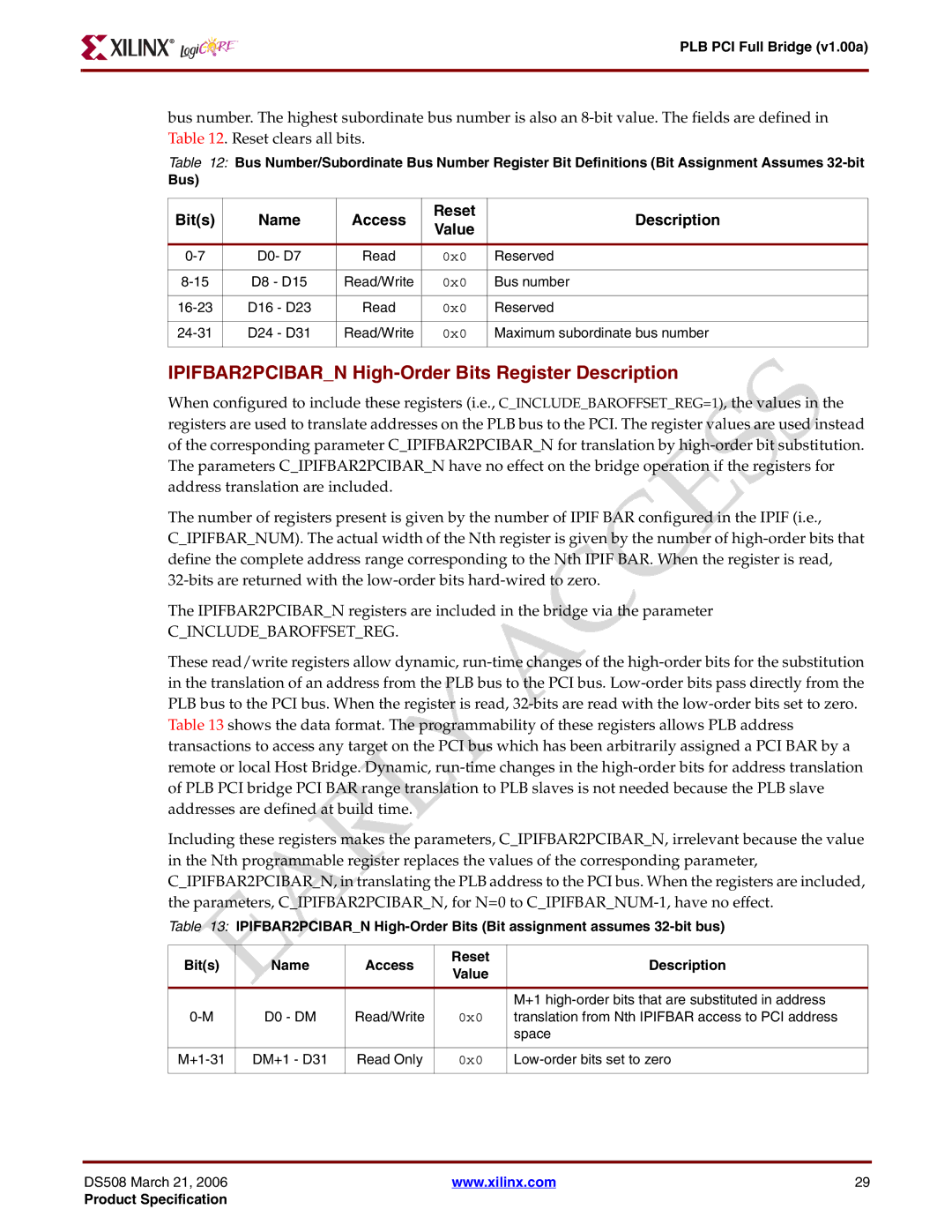
PLB PCI Full Bridge (v1.00a)
bus number. The highest subordinate bus number is also an
Table 12: Bus Number/Subordinate Bus Number Register Bit Definitions (Bit Assignment Assumes
Bus)
Bit(s) | Name | Access | Reset | Description | |
Value | |||||
|
|
|
| ||
|
|
|
|
| |
D0- D7 | Read | 0x0 | Reserved | ||
|
|
|
|
| |
D8 - D15 | Read/Write | 0x0 | Bus number | ||
|
|
|
|
| |
D16 - D23 | Read | 0x0 | Reserved | ||
|
|
|
|
| |
D24 - D31 | Read/Write | 0x0 | Maximum subordinate bus number | ||
|
|
|
|
|
IPIFBAR2PCIBAR_N High-Order Bits Register Description
When configured to include these registers (i.e., C INCLUDE BAROFFSET REG=1), the values in the registers are used to translate addresses on the PLB bus to the PCI. The register values are used instead of the corresponding parameter C_IPIFBAR2PCIBAR N for translation by
The number of registers present is given by the number of IPIF BAR configured in the IPIF (i.e.,
C_IPIFBAR_NUM). The actual width of the Nth register is given by the number of
The IPIFBAR2PCIBAR_N registers are included in the bridge via the parameter
C_INCLUDE_BAROFFSET_REG.
These read/write registers allow dynamic,
Including these registers makes the parameters, C_IPIFBAR2PCIBAR_N, irrelevant because the value in the Nth programmable register replaces the values of the corresponding parameter, C_IPIFBAR2PCIBAR N, in translating the PLB address to the PCI bus. When the registers are included, the parameters, C IPIFBAR2PCIBAR_N, for N=0 to
Table 13: IPIFBAR2PCIBAR N
Bit(s) | Name | Access | Reset | Description | |
Value | |||||
|
|
|
| ||
|
|
|
|
| |
|
|
|
| M+1 | |
D0 - DM | Read/Write | 0x0 | translation from Nth IPIFBAR access to PCI address | ||
|
|
|
| space | |
|
|
|
|
| |
DM+1 - D31 | Read Only | 0x0 | |||
|
|
|
|
|
DS508 March 21, 2006 | www.xilinx.com | 29 |
Product Specification
